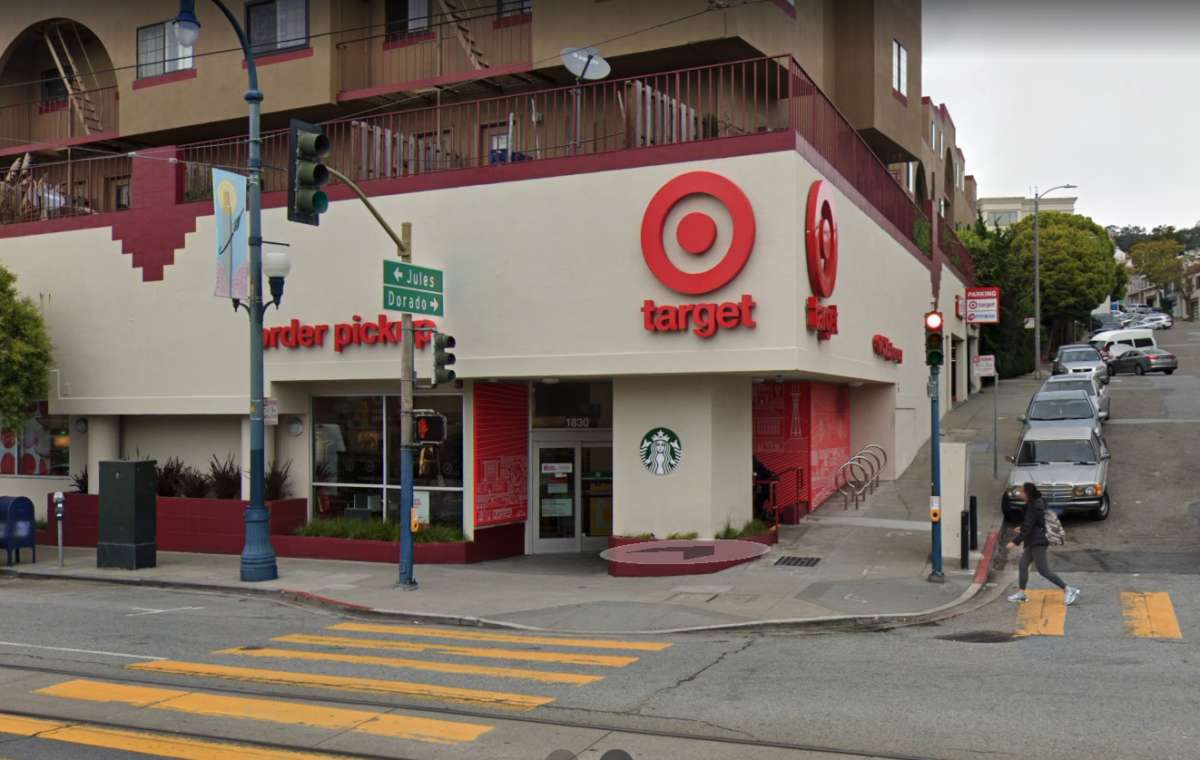

By David M. Greenwald
Executive Editor
Sacramento Sheriff Jim Cooper expressed frustration this week as they attempted to help Target with shoplifters.
As Cooper explained, “Our Property Crimes detectives and sergeant were contacted numerous times by Target to help them with shoplifters, mostly who were known transients. We coordinated with them and set up an operation with detectives and our North POP team.”
But they were told by the “head of regional security that we could not contact suspects inside the store; we could not handcuff suspects in the store; and if we arrested someone, they wanted us to process them outside… behind the store… in the rain.”
In one case, Cooper explained, “Our deputies watched a lady on camera bring in her own shopping bags, go down the body wash aisle, and grab a bunch of Native body washes. Then she went to customer service and returned them! Target chose to do nothing and simply let it happen. Yet somehow, locking up deodorant and raising prices on everyday items we need to survive is their best answer.”
After the California Retailers Association responded, Cooper followed up, “We’ve talked countless times over the past several years to try and work together to fix the  issue of retail theft caused by Prop 47. Unfortunately, my efforts with you and CRA have gotten us absolutely nowhere.”
issue of retail theft caused by Prop 47. Unfortunately, my efforts with you and CRA have gotten us absolutely nowhere.”
Cooper is blaming both the state law and also the CRA for this problem.
“You claim you have done more to combat retail theft than anyone else. The public can clearly see the problem has gotten WORSE, not better. Stop kidding yourself, you and CRA do not set policies for these corporate giants,” he writes.
One person tweeted in response, “Why are you blaming retailers for the State of California’s failed progressive leftist crime policies, laws, legislators and Judges?”
The question is why are state policies being blamed when Prop. 47 doesn’t set the level for retail theft even above the nation average?
Actual data suggests that the problem didn’t emerge after Prop. 47 was passed but rather during the pandemic.
PPIC for example, found, “Data on reported commercial shoplifting—defined under Proposition 47 (2014) as entering a commercial establishment with intent to steal property valued at less than $950 during business hours—failed to reveal evidence of increases until 2022, when the state saw a 28.7% jump from the unusually low rates of the pandemic years.”
But even that increase left the shoplifting rate below its pre-pandemic level.
However, “shoplifting is not the only type of retail theft that can shed light on the challenges retailers may be facing.”
Other crimes went up, including commercial burglary, “when an individual enters the premises with the intent to steal merchandise worth more than $950. Unlike shoplifting, commercial burglaries increased during the first year of the pandemic; after a 5.8% uptick in 2022 the rate is 15.7% higher than in 2019.”
But guess what—that is a felony and not impacted by Prop. 47.
The data from PPIC shows a pretty mixed picture—retail theft and robbery have risen in recent years… but the longer trend that includes the period of the passage of Prop. 47, shows in fact that the rates are relatively flat.
The LA Times noted “the data are murky.” Using the analysis from PPIC, they find, “What the data do show is that overall felony retail theft was up 16% in 2022 compared with 2019.”
But they add that “retail theft is up in California and elsewhere in the U.S. But those increases come even as overall crime rates have decreased notably from the rates experienced in the 1990s.”
A key factor is the framing of the issue.
Writes the Times that “with the prevalence of video monitoring in public spaces — both surveillance technology and our cameras that double as phones — it’s never been easier to record and share video of people behaving badly.”
Moreover, while crime has clearly impacted businesses, the LA Times reports that this is only “a partial truth.”
They add, “Among the truths not mentioned by Target and other retailers, she explained: inflation has made the economics of running stores more challenging.”
Then there’s the fact that politicians like Jim Cooper, Yolo County’s Jeff Reisig and others are blaming the problem on Prop. 47.
A few weeks ago, Newsweek reported that the problem is actually global, not just national.
Writes Newsweek, “Hundreds of retailers are shutting down across the country in what some experts are dubbing the ‘retail apocalypse,’ and a large number of the closures are tied to an uptick in retail crime.
“This month, Target announced it would be closing nine stores due to skyrocketing shoplifting levels. Walmart has also dealt with similar concerns at its locations, shuttering four in Chicago and warning that price increases could be on the way as inventory disappears.”
However, as a letter from the British Retail Consortium makes clear, the problem is actually Global: “The problem is not actually American in nature, however. In a letter penned by the British Retail Consortium, company leaders from some of the nation’s top 88 stores called on U.K. Home Secretary Suella Braverman to take action on the rising retail theft taking place across their country.”
And many believe that the problem is not even one of theft.
“But the retail industry’s own figures on shrink cast doubt on their claim that the problem is ballooning. Researchers say retailers may be blaming theft for losses when they don’t actually know the cause,” CNN reported.
All of this suggests that Prop. 47 is probably not the culprit here and, to the extent that retail is a problem, it is national and global in scale rather than due to local California policies.
Then there is this fact that Prop. 47 did raise the felony level from $450 to $950 in California. Had it remained at $450—which was unchanged since it was set in the early 1970s, it would be the second harshest in the nation.
At $950, only nine states have a lower felony level than California. Texas and Wisconsin are at $2500. Colorado, Connecticut, Pennsylvania, and South Carolina are at $2000. Alabama, Delaware, Georgia and Iowa are at $1500.
So why is California law being blamed for this at all?







I can answer the question David posed. Republicans and Republicans in sheep’s clothing are falsely blaming leftists. Right wingers love to point their fingers for society’s many ills on Democrats when the whole picture proves otherwise. Cue Keith Olsen. BTW, last I looked statewide initiatives are voted on by all California voters, not just Democrats.
The maddening part of all of this is really moderate and supposedly liberal Democrats are falling into the same trap. It’s easy to point the fingers at “conservatives” but I think that’s a mistake. The problem isn’t conservatives, it’s “liberals”